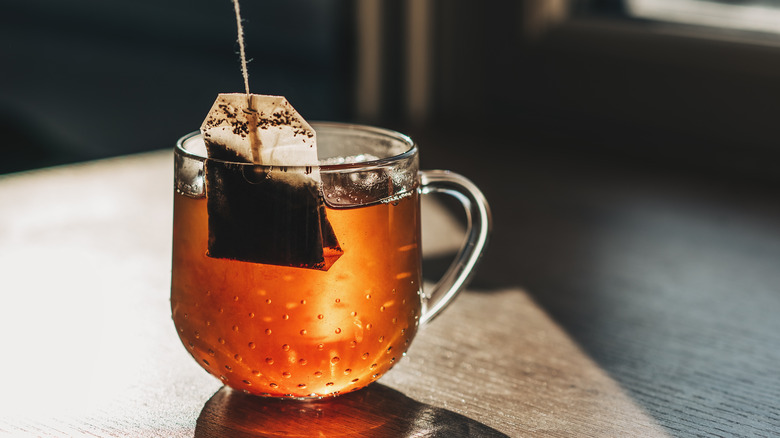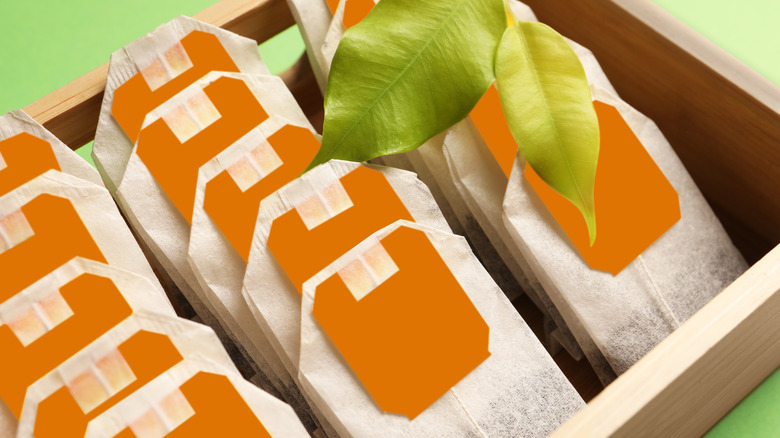Can You Safely Drink Expired Tea Bags?
Most of us have at least a few tea bags lurking in our cupboards or pantries — even if you're not a regular tea drinker, chances are you bought some the last time you were sick. If you end up ill again or just in need of a hot drink, and you reach for those bags only to find they've expired, are they still safe to consume? The answer is usually yes, but there are definite downsides to drinking old tea.
Expired tea is almost always safe to drink, as the dates on the package are more indicative of quality and the strength of the flavor, rather than potential health hazards. One notable exception is if you open the canister or box and find that your tea bags have mold on them. In this case, they should all be tossed into the garbage can, including any bags that don't have visible mold — you're not seeing spores that could be lurking in all the bags kept in the same container.
Tea bags can last anywhere from six months to two years if stored properly, so you do have quite some time to finish them. But if you discover that your box is a bit old, you should go to the store for fresh bags if you can. For one, new tea will just taste better. Even the most casual tea drinker can detect the more vivid aroma and flavor of a fresh product. More surprisingly, tea can even lose some its health benefits if it's old or not stored properly.
Tea storage practices for preventing early expiration
There are tons of potential health benefits to drinking tea. Many varieties, like green teas, include antioxidants that help to prevent damage to your cells from free radicals, and may also aid your body in fighting inflammation. However, these properties gradually fade away over time. Some teas see a significant reduction in their beneficial compounds in as few as six months since manufacturing, which doesn't even account for how long they may sit on the grocery store shelf.
If you notice your tea bags starting to lose their aroma and flavor before their expiration dates, it might be time for an adjustment in how you store them — especially if you drink decaf tea, which is more expensive than regular. For example, if you keep tea near your stove (so it's conveniently next to your stovetop kettle), you might want to move it to a cool pantry with no direct sunlight. Keeping tea near heat is a food storage mistake that can cause moisture to develop on the bags, which could lead to molding, and both heat and sunlight may have negative effects on how the tea ends up tasting. It's similar to how super hot, boiling water can ruin your tea.
Additionally, tea bags stay fresh for longer when they are not exposed to air. When you open a new box, move the bags into an airtight vessel, like a container or even a plastic zip-top bag. Or, buy some tea that comes in an opaque metal tea tin and save it to store more tea in the future.


